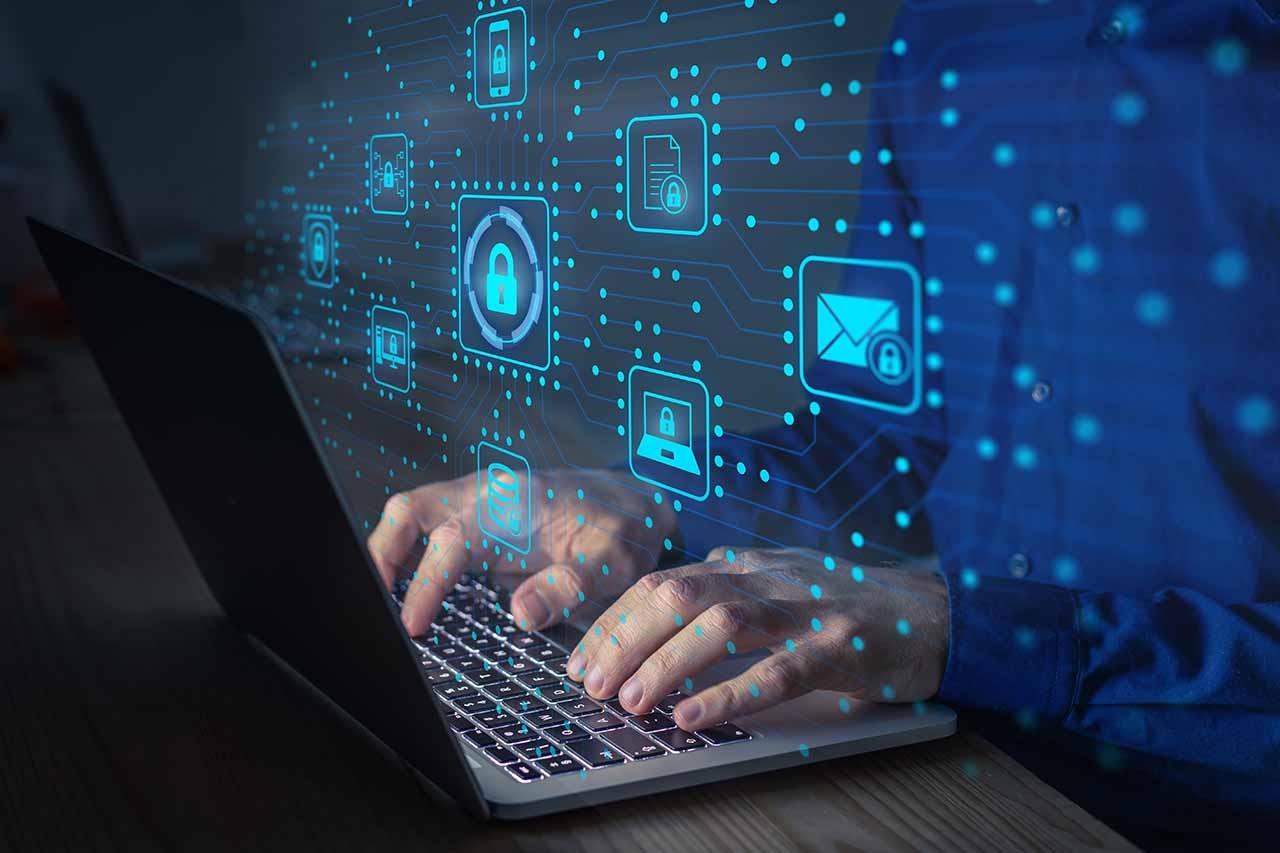In today’s interconnected world, where digital technologies pervade every aspect of our lives, ensuring cybersecurity has become paramount. With the exponential growth of internet-enabled devices and the increasing reliance on digital platforms for communication, commerce, and entertainment, safeguarding data against cyber threats has never been more critical.
Introduction to Cybersecurity
Cybersecurity encompasses the practices, technologies, and processes designed to protect computers, networks, and data from unauthorized access, cyberattacks, and data breaches. In the digital era, where sensitive information is stored and transmitted electronically, robust cybersecurity measures are essential to safeguard individuals, businesses, and governments against malicious activities.
Understanding the Connected World
The proliferation of connected devices, commonly referred to as the Internet of Things (IoT), has revolutionized the way we interact with technology. From smartphones and smart home devices to industrial sensors and medical equipment, virtually every aspect of modern life is interconnected. While this interconnectedness offers unprecedented convenience and efficiency, it also presents significant cybersecurity challenges.
Common Cyber Threats
In the complex landscape of cybersecurity, various threats pose risks to individuals and organizations alike. Malware and viruses, such as ransomware and spyware, can infect devices and compromise sensitive data. Phishing attacks, where cybercriminals masquerade as legitimate entities to trick users into revealing personal information, remain a prevalent threat. Data breaches, resulting from vulnerabilities in software or negligence in security protocols, can have severe consequences for affected parties.
Safeguarding Data: Best Practices
To mitigate the risks posed by cyber threats, individuals and organizations should adopt best practices in cybersecurity. This includes using strong, unique passwords for all accounts and implementing multi-factor authentication where possible. Regularly updating software and systems with security patches helps address known vulnerabilities, while encryption techniques protect data from unauthorized access.
Role of Individuals in Cybersecurity
While cybersecurity is often associated with technical solutions, individuals also play a crucial role in maintaining a secure digital environment. By staying informed about common cyber threats and practicing safe browsing habits, such as avoiding suspicious links and downloads, users can minimize their exposure to potential risks. Additionally, promptly reporting any suspicious activities or security incidents can help prevent further harm.
Importance of Organizational Cybersecurity
For businesses and institutions, investing in robust cybersecurity measures is essential to protect sensitive data, intellectual property, and customer trust. This involves implementing comprehensive security protocols, conducting regular security audits, and providing ongoing training to employees on cybersecurity best practices. By prioritizing cybersecurity, organizations can mitigate the potential impact of cyberattacks and safeguard their operations against disruptions.
Emerging Trends in Cybersecurity
As cyber threats continue to evolve in sophistication and scale, cybersecurity professionals are exploring innovative technologies and strategies to stay ahead of malicious actors. Artificial Intelligence (AI) is increasingly being utilized to detect and respond to cyber threats in real-time, while blockchain technology offers secure and transparent transactional frameworks. However, as the Internet of Things (IoT) expands, new challenges in securing interconnected devices emerge, requiring proactive measures to address potential vulnerabilities.
Government Regulations and Compliance
To address the growing concerns surrounding data privacy and security, governments around the world have enacted regulations and compliance standards aimed at protecting individuals’ personal information and ensuring organizational accountability. The General Data Protection Regulation (GDPR) in the European Union and the Health Insurance Portability and Accountability Act (HIPAA) in the United States are examples of regulatory frameworks designed to safeguard sensitive data and uphold privacy rights.
Cybersecurity in Business Operations
In addition to protecting sensitive information and customer data, cybersecurity is integral to the smooth functioning of business operations. By securing financial transactions, preventing intellectual property theft, and maintaining the integrity of digital assets, businesses can minimize the risks of financial losses, reputational damage, and legal liabilities associated with cyber incidents.
Impact of Cybersecurity Incidents
Cybersecurity incidents, such as data breaches and ransomware attacks, can have far-reaching consequences for individuals, businesses, and society as a whole. Beyond the immediate financial losses and operational disruptions, these incidents often result in long-term reputational damage and legal ramifications. Furthermore, the loss of trust and confidence in affected entities can have lasting implications for their stakeholders.
Cybersecurity Measures for Small Businesses
While cybersecurity is often perceived as the domain of large corporations and government agencies, small businesses are equally susceptible to cyber threats. However, limited resources and expertise may pose challenges for small enterprises in implementing robust security measures. Nevertheless, affordable security solutions and the option to outsource cybersecurity services can help small businesses bolster their defenses against cyberattacks.
Collaborative Efforts in Cybersecurity
Given the global nature of cyber threats, collaborative efforts among stakeholders are essential to effectively combatting cybercrime. Public-private partnerships facilitate information sharing and coordinated responses to cyber incidents, while collaboration among organizations enables the pooling of resources and expertise to address common challenges. Moreover, international cooperation plays a crucial role in establishing norms and standards for cybersecurity across borders.
Cybersecurity in the Future
Looking ahead, the landscape of cybersecurity will continue to evolve in response to emerging technologies and evolving threats. Advancements in cybersecurity technologies, such as quantum encryption and decentralized security architectures, hold promise for enhancing the resilience of digital systems against cyberattacks. However, staying ahead of cyber threats will require ongoing innovation, vigilance, and collaboration across sectors and jurisdictions.
Conclusion
In conclusion, cybersecurity is a critical imperative in our interconnected world, where the digital landscape is constantly evolving. By prioritizing cybersecurity measures and adopting best practices, individuals, businesses, and governments can mitigate the risks posed by cyber threats and safeguard sensitive data against unauthorized access and exploitation. As we navigate the complexities of the digital era, proactive cybersecurity efforts are essential to ensuring a safe and secure online environment for all.
FAQs on Cybersecurity
- What are the most common cyber threats?Common cyber threats include malware and viruses, phishing attacks, data breaches, and ransomware.
- How can individuals protect themselves from cyber threats?Individuals can protect themselves by using strong, unique passwords, practicing safe browsing habits, and promptly reporting suspicious activities.
- Why is cybersecurity important for businesses?Cybersecurity is important for businesses to protect sensitive data, maintain customer trust, and mitigate the risks of financial losses and reputational damage.
- What are some emerging trends in cybersecurity?Emerging trends in cybersecurity include the use of artificial intelligence, blockchain technology, and enhanced security measures for the Internet of Things (IoT).
- How can small businesses improve their cybersecurity posture?Small businesses can improve their cybersecurity posture by investing in affordable security solutions, outsourcing cybersecurity services, and staying informed about common cyber threats.



